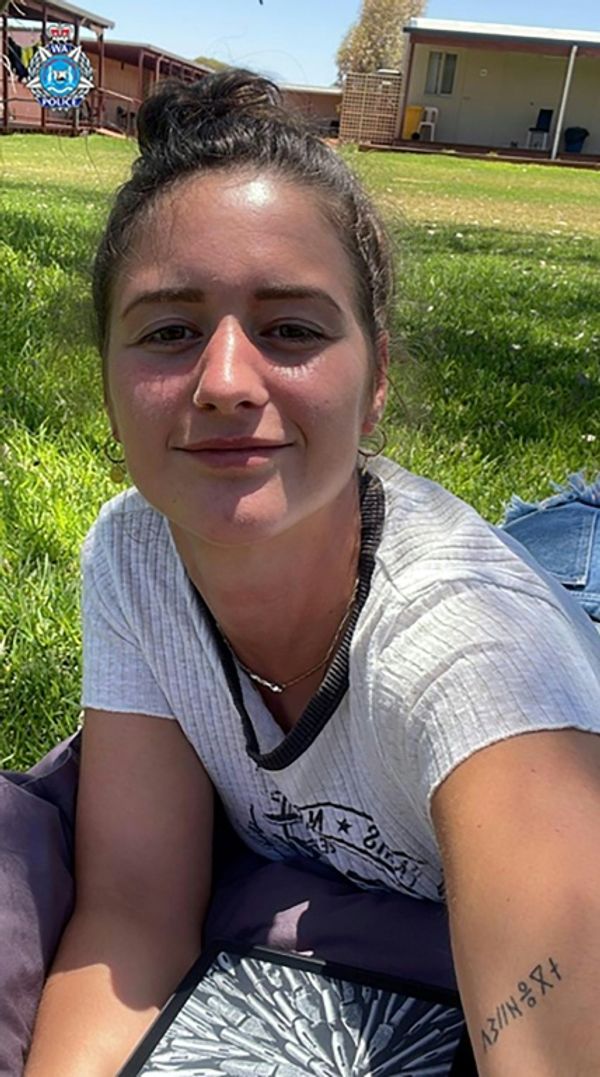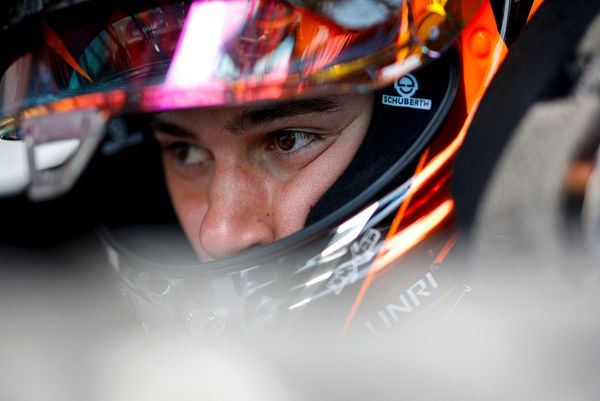
Julia Zemiro fell in love with the New South Wales southern highlands town of Bowral through her partner, Carsten Prien, a Danish expat who she met on a plane more than a decade ago. “It’s a very nice place to live – and calm – when you’ve got kind of a busy lifestyle,” she says.
And hers is a busy kind of lifestyle. When I meet her in Bowral in early August (they moved here during Covid lockdowns), she’s enjoying a couple of months of downtime between projects. In May, she wrapped a seven-week shoot for season three of Fisk, in which she plays an officious office manager and probate lawyer turned mediator. She then flew straight to Uluṟu-Kata Tjuta national park in the Northern Territory to film an episode for season two of her latest screen venture, Great Australian Walks, for which she is also an executive producer. And in October, she is will hit the road for a 38-date national tour of RocKwiz Live, the offshoot of the popular, long-running SBS music trivia show for which she is perhaps still best known.
But as much as she works hard and manifests high energy on screen, Zemiro also knows she needs to sometimes power down. “Maybe it’s that introverted/extroverted side that sometimes only children have,” she ponders. “You’re totally happy having your own time, but then you go, ‘Oh yeah, people, that’d be good!’ And then you go, ‘Ah fuck, people are full on, aren’t they?’”
A key part of Zemiro’s downtime is walking – the everyday, non-hiking variety. “I do love an urban walk,” she says (adding that it has something to do with the fact that she didn’t drive until she was 35). “You know, if you do a 30-minute walk, you’re pumping the blood around your body. It’s how you get ideas, it’s how you calm down, it’s how you clear your brain. I think we underestimate it.”
For our walk today, Zemiro says she considered taking us up Mount Gibraltar, nicknamed “the Gib” by locals and originally called “Bowrell” by the Dharawal people – “but I wasn’t sure how fit you were.” Instead, she picked a route beginning in Rivelut Park (beside the Bowral swimming centre) and moving along Cherry Tree Walk through picturesque parklands populated by king parrots, cockatoos, crimson rosellas and downy juvenile wood ducks (direct from central casting, Zemiro assures me).
Zemiro, who was born in France and is bilingual, describes herself as “absolutely the definition of flâneuse”, the French term for an urban wanderer-observer. “That’s how I’ve often travelled alone: I get on this bus, end up wherever, walk a little while – just wander.” So when the producers of Great Australian Walks pitched the show to her, it felt like a natural fit – particularly in the wake of Covid lockdowns.
Making Great Australian Walks, “it’s impossible not to look at vistas or places and not see First Nations stories”, Zemiro says, gesturing at the cherry trees and manicured grass in front of us. “You think, ‘Well, this used to not have trees on it. This used to not have invasive species.’ And then each time we have First Nations elders or rangers [as part of the episode], you’re also aware of all the languages [we have] lost, the history [we have] lost, the massacres and wars.”
Raised in Bondi by busy parents (her Queensland-born mum was a high school teacher, and her French dad was a restaurateur), she went camping with family friends but “always felt like the city kid”. Making the show consolidated a belated appreciation for nature. “My dad loved nature, but I didn’t love it as a kid,” she admits. “It makes me a bit sad because he died just before Covid [and] I want to say to him now, ‘Oh, I get what you loved about it!’”
Nature aside, making the first season of Great Australian Walks was “full on” – not least because she broke her ankle just before the show was due to start filming last year. It meant postponing the shoot, compressing an already tight schedule. “We’ve only got a certain amount of time and a pretty small, unbelievably hard working, dedicated crew,” she says – emphasising this last part by speaking loudly and directly into my phone mic. “There’s a lot to do: you’re interviewing four guests over two days, you’ve got to remember all your questions and bring plenty of energy. I’m doing my hair and makeup as I go in the car.”
So when SBS commissioned a second season hot on the heels of the first – and coinciding with Zemiro’s competing commitments – she initially balked. “I was like, ‘Oh no, no, I can’t’.’” SBS came back with a compromise, and she signed on to co-host season two alongside the comedian and actor Susie Youssef (The Project; Deadloch) and the Alone winner, Gina Chick (or as Zemiro calls her, “Mother Earth herself”).
Zemiro relishes being at a stage in her career where she can exercise her values at a higher level. “The power of being EP was saying, ‘I can’t do 10 more episodes, sorry, bye bye.’ And then [the producers] say, ‘OK, how can we [make this work].’ And you go, ‘Oh, jobs for two more women? Sure!’” she says. “That felt amazing.”
At 57, Zemiro is a regrettably rare example of a female presenter with a high enough profile to headline successive shows. When I suggest this to her, as we make our way back along our walking route in the fading light, she becomes philosophical. She doesn’t see herself as ambitious, and through her peripatetic career – which began at 26 – the only through-line she traces is that “they’re all jobs that involve interacting with people.”
As she says elsewhere in the conversation, discussing the frustration of filming during Covid, “I became a performer so I could touch people and hang out.”
As for a career philosophy, she says: “I think you are defined by what you say no to, as well as what you say yes to.”
“I have said no to big, big jobs that I thought were stupid; I don’t believe you should do a job just because it’s there,” she says. Looking at the last two decades of her career, she says she sees the worth of what she has made. “And that’s a great feeling.”
The second season of Great Australian Walks premieres on 22 August and will be available at SBS OnDemand.







